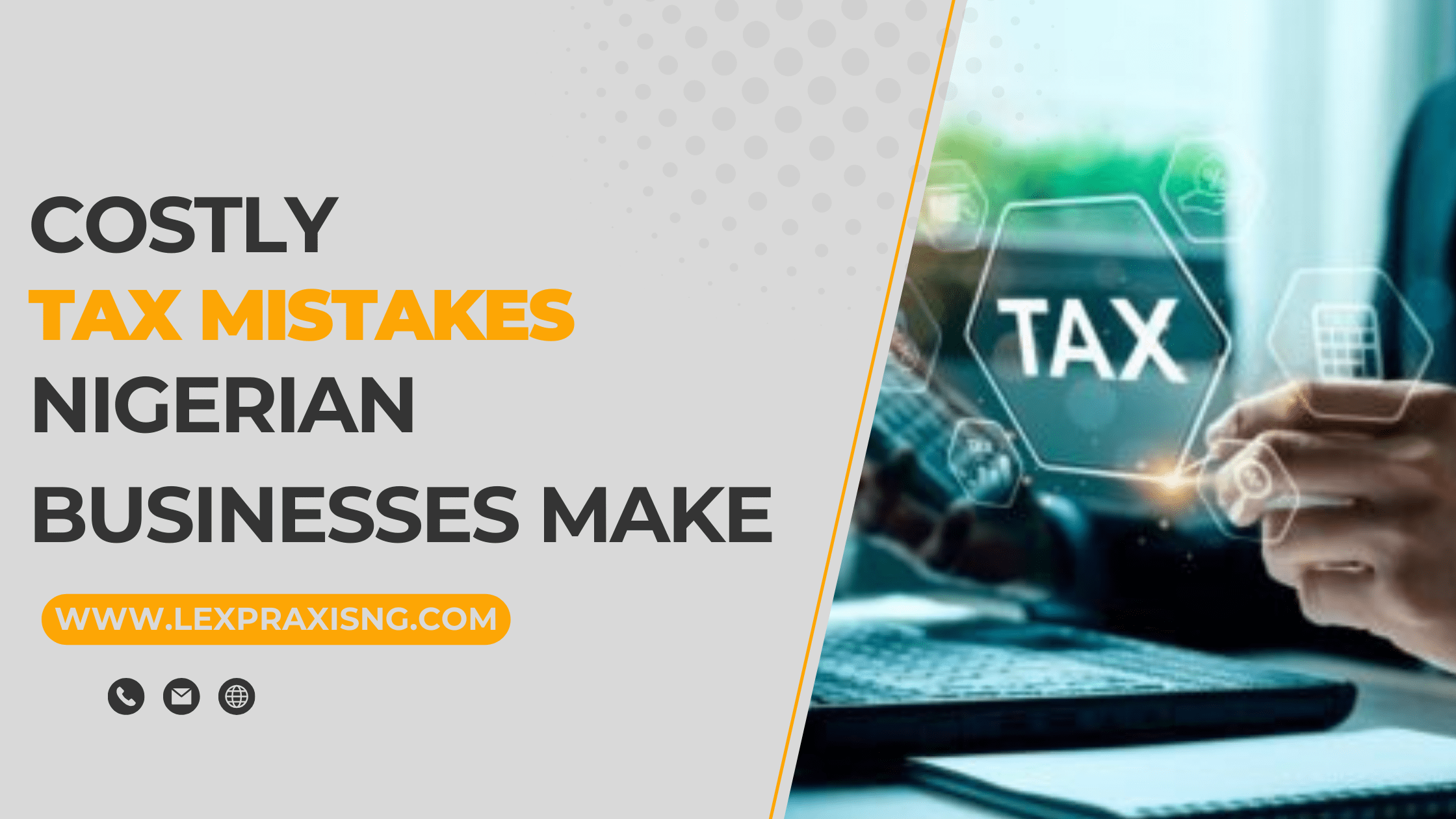If you own a business in Nigeria, there’s a high chance you’re losing money to the tax man — not because you’re not making enough, but because of costly mistakes you didn’t even know you were making.
In this article, I’m going to show you 10 common tax traps Nigerian business owners fall into, and more importantly, how you can avoid them so you keep more of your hard-earned money and stay on the right side of the law.
Let’s jump straight into the 10 mistakes.
1. Not Knowing Which Taxes Apply to You
One of the biggest mistakes I see is business owners thinking that once they’ve registered their business with the Corporate Affairs Commission (CAC), they’re automatically tax compliant. The CAC is not responsible for monitoring and enforcing tax compliance in Nigeria. The truth is, depending on your business type, you might be required to pay Company Income Tax (CIT), Value Added Tax (VAT), Withholding Tax (WHT), Pay-As-You-Earn (PAYE) for staff, and even Capital Gains Tax (CGT).
If you don’t know which ones apply, you can’t meet your obligations, and that’s how penalties start piling up.
2. Value Added Tax (VAT) Confusion
VAT isn’t for everyone. Under the current Nigeria Tax Reform Act, tax regime, if your business makes less than ₦100 million annually, you don’t have to charge VAT, but if you do cross that threshold, you must charge it, collect it, and remit it on time.
Also, not all types of businesses are required to charge or remit VAT. Businesses selling zero-rated items or essential goods and services such as basic food items, medical and pharmaceutical products, educational books and materials, electricity generation and transmission services, medical equipment and services, tuition fees, exports (excluding oil and gas exports), etc, are VAT exempt.
In addition, many businesses get into trouble because they collect VAT and then delay remitting it. The penalties can be painful — so, always file and remit within the timeline.
3. Withholding Tax Traps
Withholding Tax is meant to be a credit against your future taxes, but many business owners lose money because they don’t track it. If a client or supplier deducts WHT, ask for a credit note. Without it, you can’t claim it back, and you’ll end up paying more tax than necessary.
4. Not remitting P.A.Y.E for Staff
Even if you only have two or three employees, you must register for Pay-as-you-Earn (PAYE) in the state where they work. PAYE is deducted from employees’ salaries and paid to the State IRS. The penalties for not doing this are charged per staff, per month, and they add up quickly.
5. Mixing Personal & Business Finances
This one is very common. You use your business account to pay for school fees or groceries, and then try to claim those expenses as business costs.
This makes audits messy and can lead to legitimate deductions being disallowed. Keep your personal and business transactions separate, ideally in different bank accounts.
6. Capital Gains Tax Blind Spots
Selling business property or shares? There’s a 10% Capital Gains Tax you need to account for.
Without proper records showing your purchase cost, you might end up paying more tax than you actually owe.
7. Poor Record-Keeping
Receipts in WhatsApp chats, invoices saved only on your phone, no backups… this is dangerous.
If tax authorities can’t verify your figures, they can estimate your tax — and trust me, their estimates are rarely in your favour.
Use simple tools like Excel, QuickBooks, or even Google Sheets to stay organised.
8. Missing Tax Incentives
Many small businesses miss out on tax reliefs, such as Pioneer Status, small company exemptions, or agricultural incentives, simply because they are unaware of their existence. Always check if your business qualifies — this could save you millions.
9. Penalty & Interest Snowball
Ignoring tax notices won’t make them go away. Penalties and interest multiply, often faster than the original tax itself. If you can’t pay at once, negotiate a payment plan with the authorities instead of pretending the problem isn’t there.
10. Audit Panic
When you get an audit letter, don’t panic and don’t hand over every single business document you’ve ever created. Know your rights, understand what’s being asked for, and have a professional guide you through it.
CONCLUSION
If any of these tax mistakes sounded familiar, it’s time to take action before the penalties pile up. At Lex-Praxis, we help business owners save money, stay compliant, and be audit-ready all year round. Send an email HERE, let’s make sure your business is tax-smart and penalty-proof, or click this link to book a consultation.
